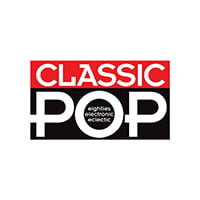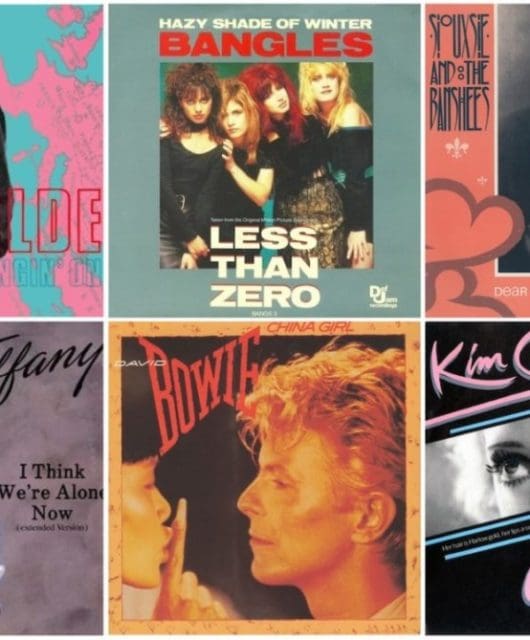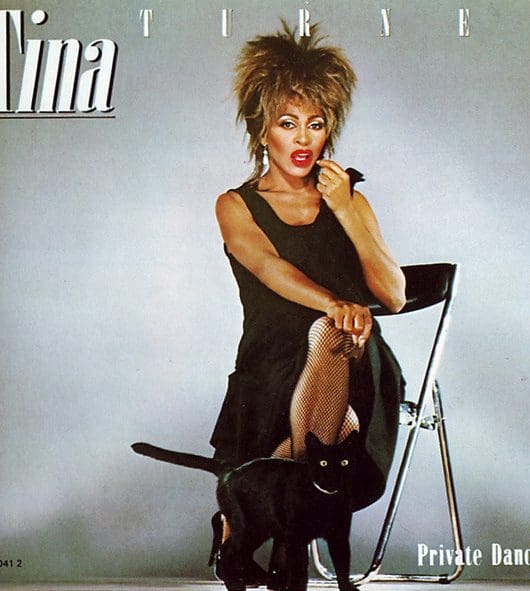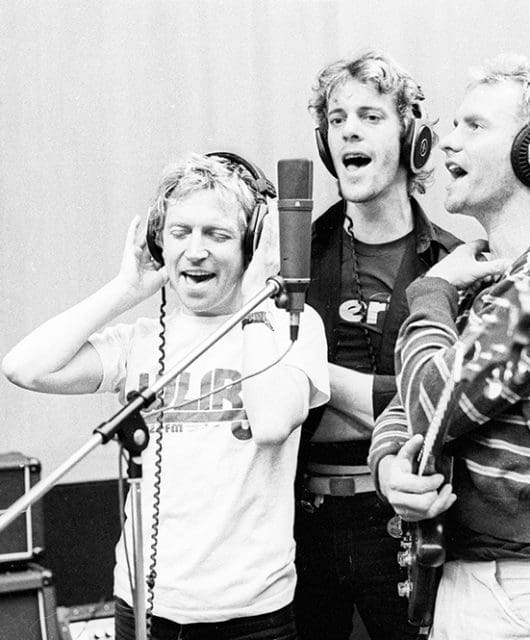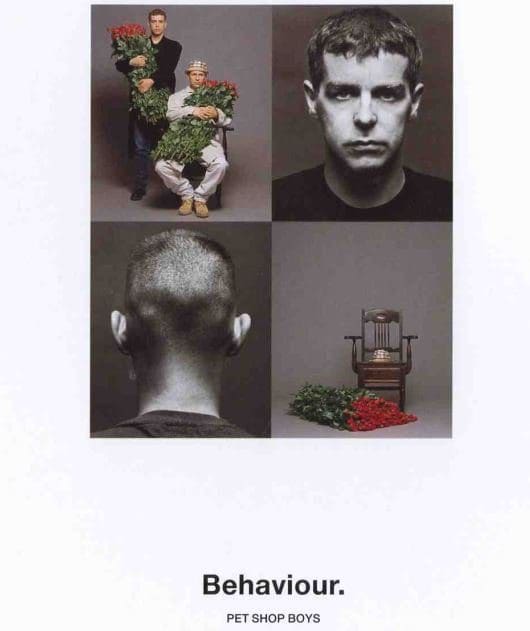The Lowdown: ABBA
By Classic Pop | October 9, 2018
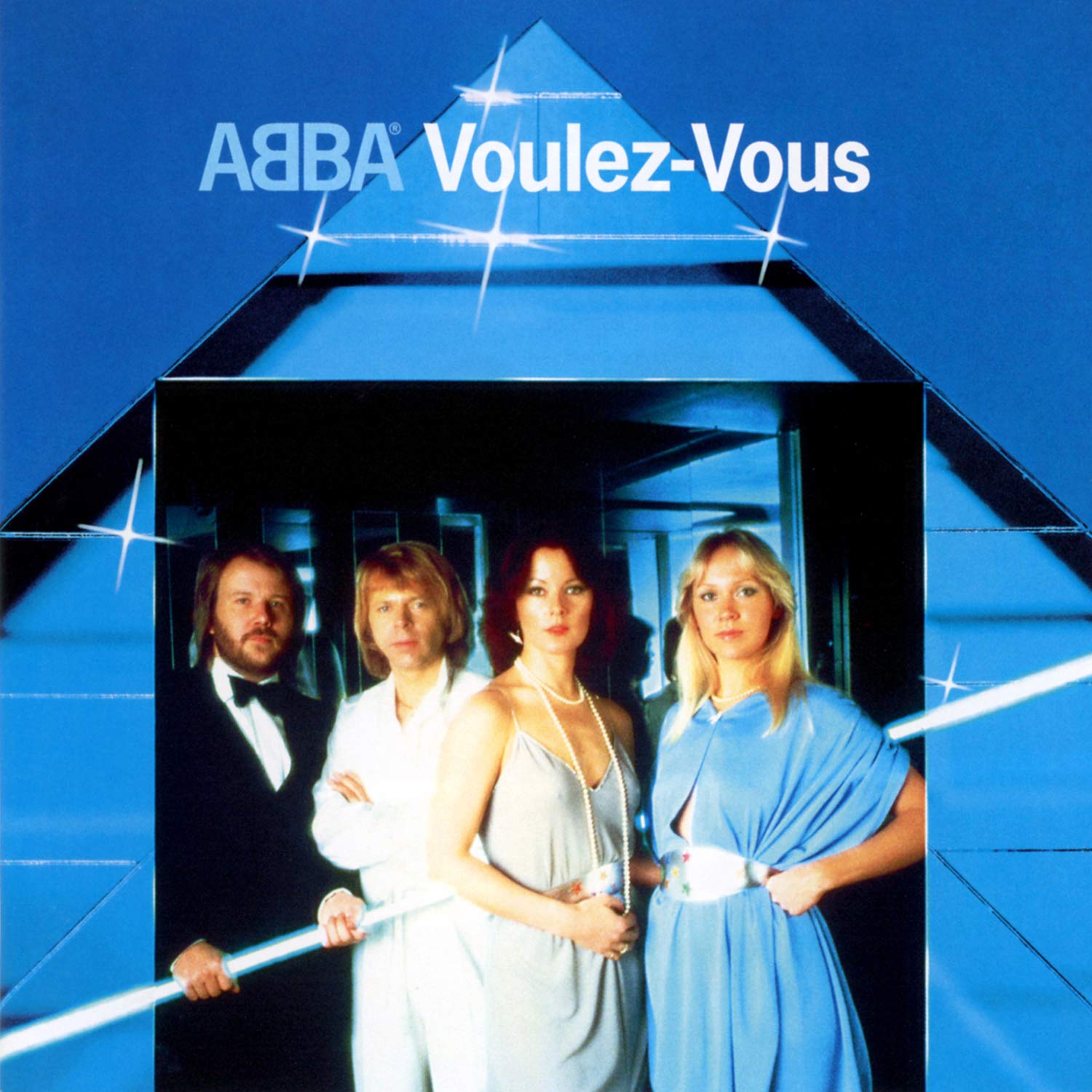
We remember the must-have singles and albums from one of the greatest pop groups of all time – the mighty ABBA. Written by David Burke.
The ABBA story begins in 1966, when Björn Ulvaeus met Benny Andersson for the first time. Ulvaeus was a member of folk outfit The Hootenanny Singers, while Andersson played keyboards in The Hep Stars. They wrote their first song together later that year, and, by the end of the 60s, collaborated regularly.
Fast-forward three years and step forward the two women who would become the perfect foil for Ulvaeus and Andersson’s compositions, as well as their respective spouses. They were Agnetha Fältskog, already a successful solo singer, and Anni-Frid Lyngstad, a then-fledgling recording artist.
In 1973, under the mentorship of Polar Music impresario Stig Anderson, the quartet became ABBA, not only an acronym of their first names, but also the name of a Swedish canned fish company (with whom the group reached an agreement in order to secure the moniker).
ABBA were chosen to fly the flag for Sweden at the Eurovision Song Contest in 1974 – having missed out on national selection 12 months earlier with Ring Ring – and went on to triumph with Waterloo. The song went to No.1 in the UK and across Europe, even making No.6 on the US Billboard chart.
Their next four singles failed to chart in the UK, until I Do, I Do, I Do, I Do, I Do peaked at a modest No.38. Then came SOS, from their eponymously-titled third album, and ABBA’s gradual, unstoppable elevation to superstar status.
Between 1975 and 1981, ABBA chalked up eight chart toppers – including Mamma Mia, Fernando and The Name Of The Game – and nine Top 10 entries on this side of the Atlantic, in addition to claiming pole position Stateside with Dancing Queen.
There were sell-out tours, a movie and a relentless work schedule, which ultimately took its toll on the two marriages that anchored ABBA, as well as on the band itself. According to Carl Magnus Palm, internationally renowned authority on the foursome: “Everyone started feeling that ABBA had run their course.”
ABBA’s final single was 1983’s Thank You For The Music before returning in 2021 with two new singles and a brand new album. Sadly, Voyage really does look like the final farewell…
- Read more: Top 40 ABBA songs
The Must-Have Albums
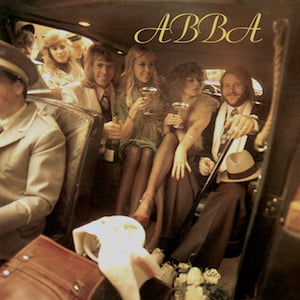 ABBA (1975)
ABBA (1975)
Going global
The success promised by their 1974 Eurovision win didn’t materialise at first, despite Top 10 placings in Germany, Austria and their native Sweden with Honey, Honey and So Long.
They finally gained traction with a trio of singles from their third album – I Do, I Do, I Do, I Do, I Do, SOS and Mamma Mia – that saw their popularity in the northern hemisphere increase and subsequently percolate through to the southern hemisphere, as Australia and New Zealand got hip to the ABBA phenomenon.
SOS was apparently a favourite of both Pete Townshend and John Lennon, while the Sex Pistols’ bassist, Glen Matlock, admitted reworking its intro for Pretty Vacant. Mamma Mia, of course, became one of their most defining tunes.
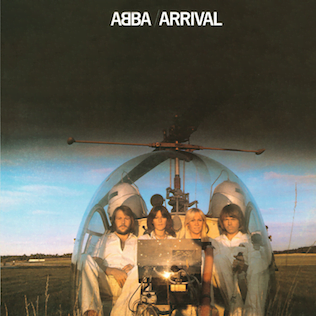 Arrival (1976)
Arrival (1976)
The most accomplished yet
According to Agnetha Fältskog, when ABBA began working on the George McCrae-inspired Boogaloo in August 1975, they “knew immediately it was going to be massive”.
This gut instinct proved prescient as, retitled Dancing Queen, it became the group’s biggest hit, giving them their sole US chart-topper.
Arrival also produced the hits Money, Money, Money and Knowing Me, Knowing You, the latter described by Benny Andersson as “one of our five best recordings”.
In NME, Bob Woffinden declared that ABBA were: “Operating in a rarefied atmosphere where the only true competition is their own previous standards. Arrival matches expectations and is their most accomplished to date.” Their most accomplished album of all time? Possibly.
- Read more: Making ABBA: Arrival
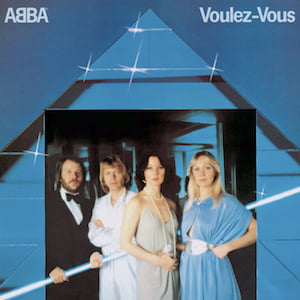 Voulez-Vous (1979)
Voulez-Vous (1979)
Solid rather than spectacular
All was not well in the ABBA camp as they worked on their sixth album in 1978. A single from the recording sessions, Summer Night City (which didn’t make the final cut of Voulez-Vous), gave them their smallest UK hit since 1975 but, more worryingly, Björn Ulvaeus and Benny Andersson were assailed by writers’ block.
Agnetha told a reporter: “I can tell from the look in Björn’s eyes when he gets home how the day’s work has been. Many times, the boys have been working for 10 hours without coming up with one single note.”
The release was deferred until 1979 – by which time Ulvaeus and Fältskog had divorced – and anxiety over the tortured process was allayed as the title track, I Have A Dream and Chiquitita all made chartland.
- Read more: Making ABBA: Voulez-Vous
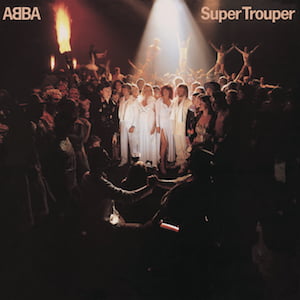 Super Trouper (1980)
Super Trouper (1980)
The end is nigh
Britain’s biggest-selling album of 1980 found ABBA in flux. Following Ulvaeus and Fältskog’s split, Andersson and Lyngstad were soon to follow suit.
Consequently, what emerges on Super Trouper (named after a type of directional stadium spotlight) is a set of songs rich in emotional depth – especially on their penultimate UK No.1, The Winner Takes It All.
Ulvaeus denied that the track was autobiographical, although it’s difficult to interpret the lyrics as anything else, particularly when paired with the pathos of Fältskog’s delivery.
Our Last Summer and Happy New Year accentuate the album’s sense of loss, while The Way Old Friends Do – recorded live at Wembley – smacks of a swansong. Which, of course, is exactly what it was.
- Read more: Making ABBA: Super Trouper
And the Rest…
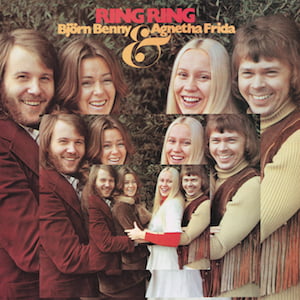 Ring Ring (1973)
Ring Ring (1973)
1973 ABBA’s debut album is actually credited to ‘Björn Benny & Agnetha Frida’, the group not having yet assumed the name that would reign supreme.
A largely underwhelming first effort shows several glimpses of what was to come, especially on the title track, which features lyrical contributions from Neil Sedaka and his writing partner, Phil Cody.
Surprisingly, the composition failed in its bid to become Sweden’s entry for 1973’s Eurovision.
Elsewhere, People Need Love, despite its schmaltzy chorus (“People need hope, people need loving”) – boasts a beguiling melody, while Another Town, Another Train is an exemplar of solid song construction.
- Read more: Making ABBA: Ring Ring
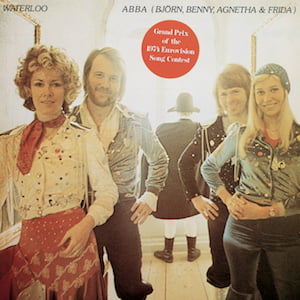 Waterloo (1974)
Waterloo (1974)
ABBA were a couple of months into their second album when they announced their candidacy for Sweden’s 1974 Eurovision entry. The group found themselves torn between pitching Hasta Mañana and Waterloo, eventually plumping for the latter as it signposted their direction of travel, musically.
The choice proved astute, with Waterloo taking Eurovision honours and giving ABBA their first international hit.
Greg Shaw, writing in Phonograph Record, reckoned that Waterloo displayed “a real diversity of styles and an overall sense of excitement and expanding creativity that is the mark of an emerging phenomenon”. He certainly wasn’t wrong.
- Read more: Making ABBA: Waterloo
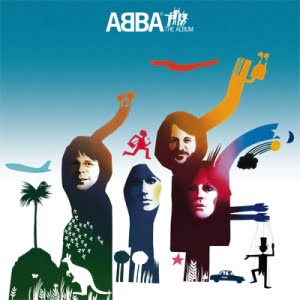 ABBA: The Album (1977)
ABBA: The Album (1977)
Such was the pre-order demand for ABBA’s fifth album that UK pressing plants were unable to meet the Christmas 1977 deadline.
Not that it mattered, as the collection entered the chart at No.1 and stayed there for seven weeks, finishing third behind soundtracks Saturday Night Fever and Grease on the year-end biggest seller lists.
At the same time, sales exceeding one million in Poland exhausted the country’s entire allocation of foreign currency.
The nine-song set, including a couple of British No.1s in Take A Chance On Me and The Name Of The Game, cemented ABBA’s unassailable position as a band most beloved by the whole world.
- Read more: Making ABBA: The Album
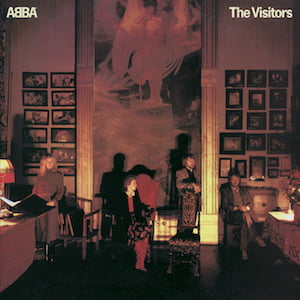 The Visitors (1981)
The Visitors (1981)
“We’ve emptied ourselves of everything we’ve got to give,” said Björn Ulvaeus after the release of ABBA’s final album, both a metaphorical and explicit document of the group’s impending dissolution and their marital breakdowns.
Although When All Is Said And Done rakes over the coals of Benny and Frida’s demise as a couple, ironically, it was Björn who penned the lyrics. He was concerned that singing them would be too much of an emotional wrench for Lyngstad, until she reassured him that the opportunity to express her true feelings so vividly was a welcome one. “All my sadness is captured in that song,” she noted, years after the album’s release.
- Read more: Making ABBA: The Visitors
- Read more: ABBA in the studio
ABBA – The Essential Singles
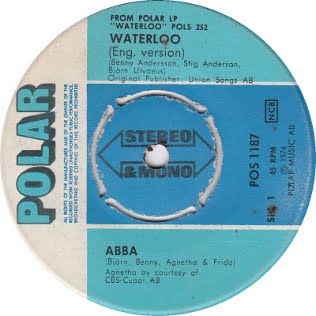 Waterloo (1974)
Waterloo (1974)
Napoleon meets Phil Spector
Napoleon’s surrender at the Battle of Waterloo in 1815 is the curious metaphor used to describe a woman submitting to her man in the song that launched ABBA on the international stage.
Stig Anderson conceived the idiosyncratic lyrics, while Benny and Björn came up with the basic track.
The production – layers of instrumental overdubs – was influenced by Phil Spector’s Wall of Sound, engineer Michael B. Tretow having immersed himself in Richard Williams’ tome, Out of His Head: The Sound of Phil Spector, prior to recording.
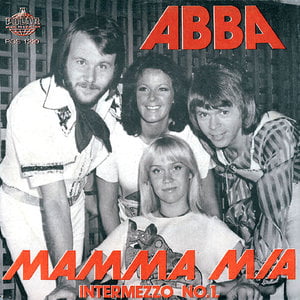 Mamma Mia (1975)
Mamma Mia (1975)
Brotherhood of Man reject
The track whose title was appropriated for both the smash hit film and musical wasn’t even meant to be a single.
Indeed, the story goes that ABBA offered Mamma Mia to fellow Eurovision winners, Britain’s Brotherhood of Man, who subsequently turned it down.
The distinctive tick-tock rhythm at the start is a marimba, an instrument of African origin similar to the xylophone but with wooden bars, that Andersson found lying around the studio and decided to use.
As is the case with so much of ABBA’s material, the jaunty up-tempo melody masks a tale of lost love.
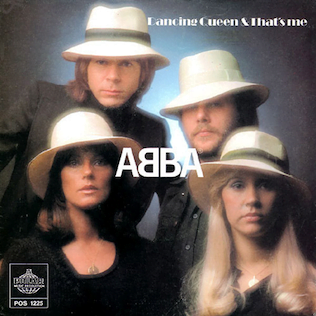 Dancing Queen (1976)
Dancing Queen (1976)
Europop disco classic
This Europop take on disco was inspired by George McCrae’s 1974 hit single, Rock Your Baby, and the drumming on Dr John’s 1972 album, Gumbo, with Stig Anderson wisely supplanting the original title of Boogaloo with Dancing Queen.
Dancing Queen topped the charts in more than a dozen countries, including the United States, and was Britain’s biggest seller of 1976.
The song was re-released in the UK in 1992, taking advantage of the success of Erasure’s Abba-esque EP. The reissued Dancing Queen reached No.16 in September of that year.
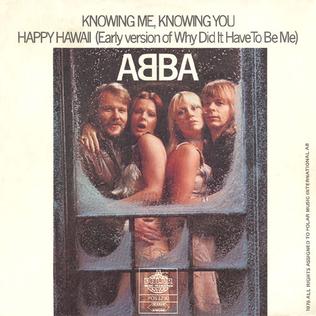 Knowing Me, Knowing You (1977)
Knowing Me, Knowing You (1977)
Love on the rocks
Björn wrote the lyrics for Knowing Me, Knowing You at a time when relationships within ABBA were becoming strained.
His marriage to Agnetha Fältskog was on the rocks and would soon end in separation – the same fate that would also befall Benny and Anni-Frid.
“In many ways, Agnetha and my divorce was an amicable one,” said Ulvaeus. “We just grew apart and decided, ‘Let’s split up’. Benny and Frida’s was a little more difficult.
“It was not a happy time, but still very creative.” Knowing Me, Knowing You was 1977’s biggest-selling single in the UK.
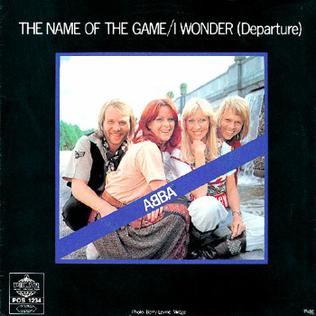 The Name Of The Game (1977)
The Name Of The Game (1977)
Wonder-ful inspiration
Björn and Benny were big Stevie Wonder fans, especially of his seminal album, Songs In The Key Of Life.
They reworked the bassline of I Wish, one of that LP’s signature songs, to become the fulcrum for The Name Of The Game (initially named A Bit Of Myself), ABBA’s most complex arrangement yet, replete with a six-part harmony structure.
In 1997, The Fugees used this bassline for Rumble In The Jungle, the first time the Swedes ever consented to one of their songs being sampled.
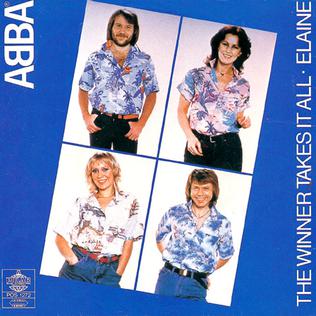 The Winner Takes It All (1980)
The Winner Takes It All (1980)
90% fiction
Björn wrote The Winner Takes It All over a bottle of brandy, telling The Times in 2010: “Usually it’s not a good idea to write while you’re drunk, but it all came out on that one. By the time I wrote ‘The gods may throw their dice’, the bottle was empty.”
Although composed after his separation from Agnetha, Björn insisted it was 90% fiction, explaining: “I had this image of a man walking through an empty house with all the furniture removed as a symbol of divorce, and just describing what I see.”
Only for the Brave
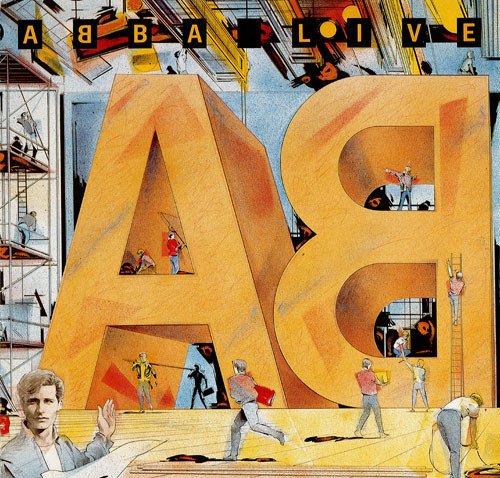 ABBA Live (1986)
ABBA Live (1986)
Such is the peerlessness of ABBA’s oeuvre, it’s almost impossible to identify a stinker – though this cut-and-paste live compilation comes close. Issued four years after they went their separate ways, ABBA Live collates concert material from 1977, 1979 and 1981, alongside excerpts from an American TV special.
- Read more: ABBA Albums: The complete guide
Need to Know
- Anni-Frid Lyngstad is the only non-Swedish member of ABBA, being born in Norway. Her mother was Norwegian, while her father was a sergeant in Germany’s Wehrmacht during World War 2.
- ABBA were among the pioneers of the music video, with most of their promos directed by Lasse Hallstrom, whose extensive filmography includes a couple of Oscar nominations for My Life As A Dog and The Cider House Rules.
- Ulvaeus and Andersson are fiercely protective of their legacy. They have only ever permitted two artists to sample their work. The Fugees incorporated The Name Of The Game into their 1997 hit single, Rumble In The Jungle. In 2005, Madonna featured the instrumental intro of Gimme! Gimme! Gimme! (A Man After Midnight) on Hung Up.
ABBA – The Must-Watch Videos
Dancing Queen
Since global fame made it impossible to make personal appearances everywhere, the promo allowed fans to see their idols up close.
Here, and not for the first time, director Lasse Hallstrom, prefers performance to storyline. The band lip-synch impeccably, while an audience slightly younger and more animated than a regular Top Of The Pops crowd, strut their stuff. And why wouldn’t they? Dancing Queen is all about the exuberance of the dance.
Super Trouper
Apparently, Super Trouper features the largest number of people ever in an ABBA promo, many of them appearing in the scenes where the group, resplendent in white and visibly enjoying not being the focus of attention, watch circus performers do their thing.
Hallstrom once again lets the lens love Agnetha and Frida, restricting Björn and Benny to the occasional smiley cameo. But if it ain’t broke…
Money, Money, Money
With the song featuring Frida on lead vocals, she’s the on-screen star, too, in a promo that’s a sort of paean to both German actress Marlene Dietrich and the 1972 musical drama Cabaret, which starred Liza Minnelli and was set in 30s Berlin.
Here, Frida cuts a stylish figure in a fedora characteristic of that era. Hers is a theatrical presence in a video that, like the song itself, is pure theatre.
The money shot in the chorus literally shows a fistful of dollars and the riches such loot can buy. An alternative short was made for a TV special.
The Day Before You Came
The shots of the railway platform at Tumba station, just outside of Stockholm, are desolate and beautiful, as Agnetha waits for the train. Later, on board, she flirts with a stranger, played by Swedish actor Jonas Bergström.
According to Christopher Patrick, in the book ABBA: Let The Music Speak, the final sequence, where “the train shunts off into oblivion, leaving in its wake a bleak and deserted railway station”, was an apt metaphor for the group having reached the end of their creative journey together.
- Want more from Classic Pop magazine? Get a free digital issue when you sign up to our newsletter!
Did you enjoy this feature on the singles and albums of ABBA? Then check out our Lowdown feature on Squeeze
